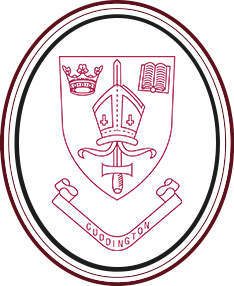PSHE & Citizenship
The PSHE Curriculum at Cuddington

Intent, Implementation, Impact
In PSHE, we aim to bring out the best in our learners by developing their emotional literacy, social awareness, and ability to navigate personal and academic challenges. Through Jigsaw, children learn how to understand themselves and others, build respectful relationships, and contribute positively to their communities.
KS1 and KS2 Curriculum Overview
|
|
Years 1-6 Lesson Structure |
|
Autumn 1 |
Being Me in My World |
|
Autumn 2 |
Celebrating Difference |
|
Spring 1 |
Dreams and Goals |
|
Spring 2 |
Healthy Goals |
|
Summer 1 |
Relationships |
|
Summer 2 |
Changing me |
Further information on the content of each lesson can be found on the Curriculum Maps for each year group.
Citizenship
Over the course of their time in school, pupils will learn about themselves as growing and changing individuals with their own experiences and ideas, and as members of their communities. They become more mature, independent and self-confident. They learn about the wider world and the interdependence of communities within it. They develop their sense of social justice and moral responsibility and begin to understand that their own choices and behaviour can affect local, national or global issues and political and social institutions. They learn how to take part more fully in school and community activities. As they begin to develop into young adults, they face the changes of puberty and transfer to secondary school with support and encouragement from their school. They learn how to make more confident and informed choices about their health and environment; to take more responsibility, individually and as a group, for their own learning; and to resist bullying.
Citizenship is integrated both discretely and throughout the curriculum, providing pupils with opportunities to:
- Build their confidence and sense of responsibility, and fully explore their abilities.
- Understand and practice active citizenship.
- Learn how to lead a healthier and safer lifestyle.
- Develop good relationships and respect for differences among people.
- Gain knowledge about the governance of the United Kingdom, its political system, and active participation in democratic processes.
- Cultivate an interest in and commitment to volunteering and other forms of responsible activities that they will carry into adulthood.
- Enhance their critical thinking and debating skills.
- Learn how to manage their finances and plan for future financial needs.
The Citizenship curriculum covers key themes such as:
- Rights and responsibilities
- Different communities we belong to
- Diversity
- The world of work
- Understanding and managing finances
- Environmental stewardship
- The role of law and the justice system in our society
Pupils are encouraged to respect democracy and engage in democratic processes through pupil voice and opportunities to vote on relevant issues, such as classroom activities, clubs, playground design, or trips.

